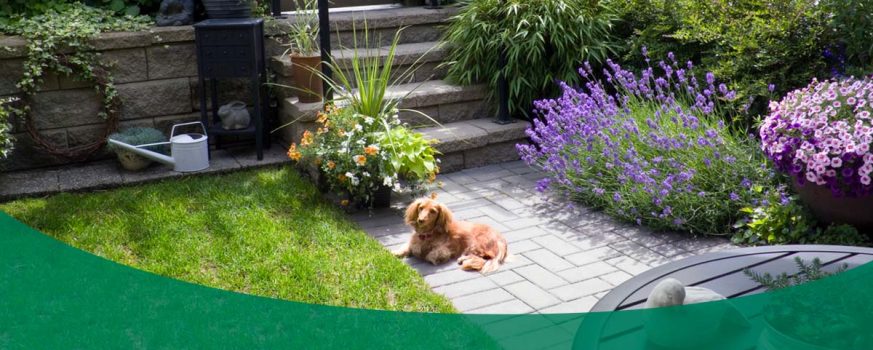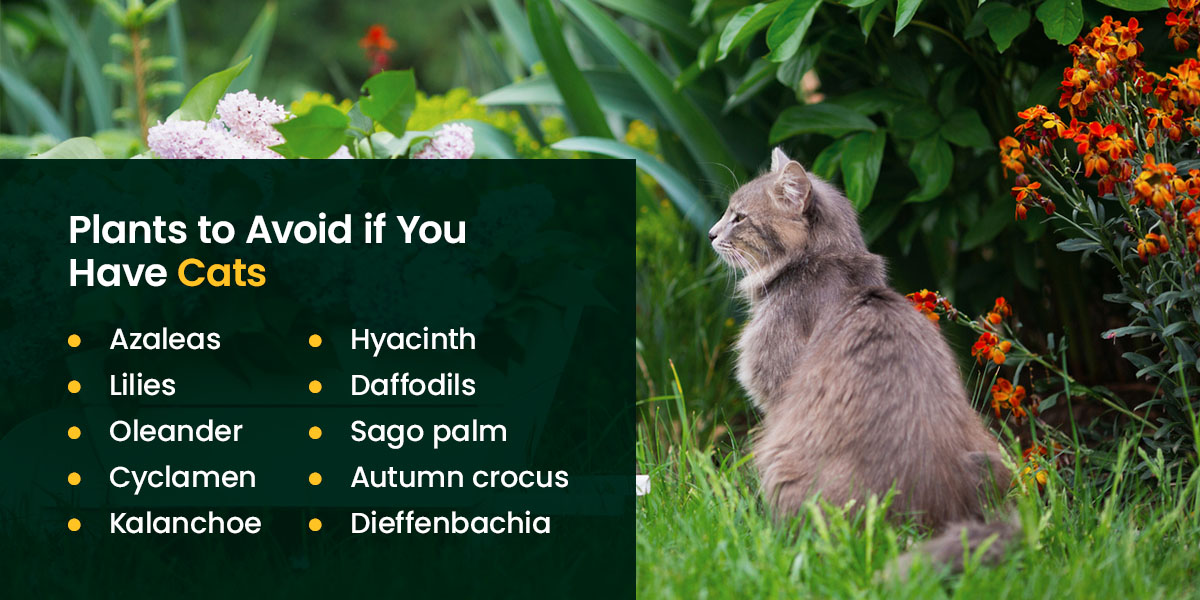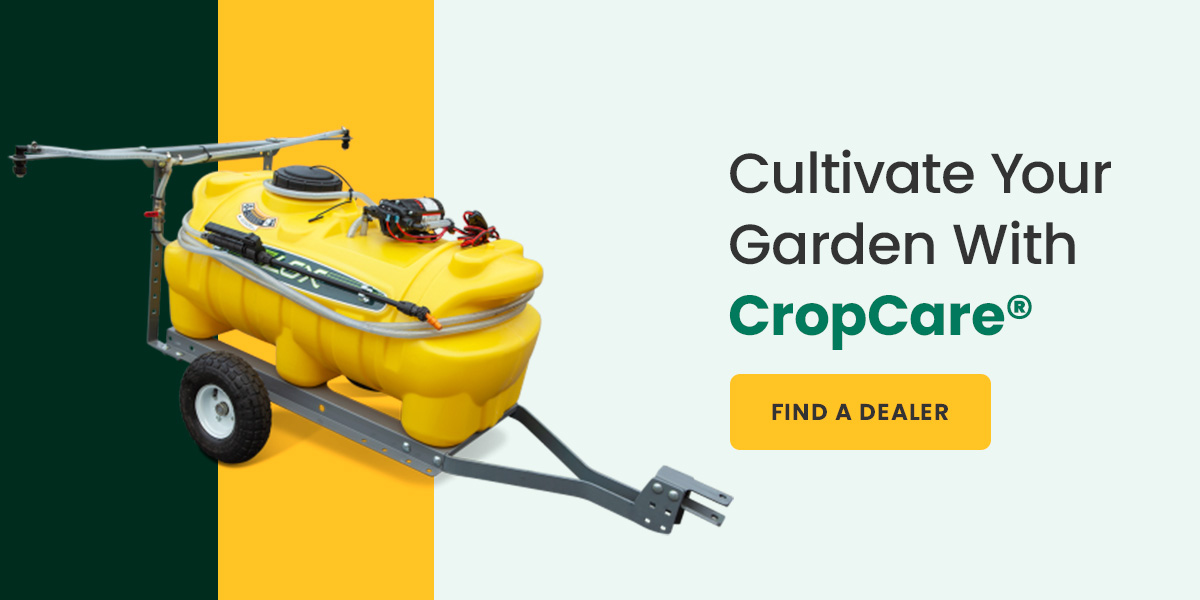
Household plants and gardens create elegant and sustainable spaces. However, some plants are toxic to animals, and your crops could endanger your dogs, cats and other creatures. You must understand which indoor and outdoor plants can harm your pet, especially if they’re prone to inspecting new blooms or digging in the garden. Discover which plants to avoid with pets and why these crops can harm your non-human family members.
Plants to Avoid if You Have Dogs
Dogs love being outdoors. The fresh air, enticing scents and room to run are inviting and fun. However, some curious pets can’t seem to stay out of the garden. They may encounter some harmful crops as they sniff, dig and explore. Do not cultivate these plants if you have dogs.
- Aloe vera: Aloe is a succulent with anti-inflammatory and healing properties. While this soothing plant is excellent for sunburn, it’s highly toxic for your pups. Dogs who consume these plants can experience seizures, vomiting, diarrhea and other painful symptoms. If you suspect your furry friend has eaten this plant, make an emergency vet appointment.
- Belladonna: Belladonna is poisonous to people and animals. Though small doses of this plant can ease pain and relax muscles, large quantities can be extremely harmful. Dogs can experience tremors, vomiting, diarrhea and other distressing symptoms if they consume this plant.
- Asparagus fern: This plant is mildly toxic to furry friends. Its berries can cause vomiting, and frequent exposure can irritate your dog’s skin.
- Hemlock: Extreme symptoms can result from even small doses of hemlock. This plant can be fatal to people and animals. Other symptoms include violent convulsions, seizures, panting and severe abdominal pain.
- Aconitum: Though aconitum — also known as monkshood or wolfsbane — can be a lovely accent in a flower garden, it is toxic. Keep your dog out of your flowerbed or plant something else.
- Lilies: Lilies often appear in landscaping, floral arrangements and kitchen tables. The beautiful colors and aromatic scents are delightful for people but can cause acute kidney injuries for pups.
- Daffodils: These sunny blooms are a beautiful herald of spring, brightening gardens worldwide. However, each part of this plant can harm your pup. Daffodil bulbs are a particular concern for dogs, as they can cause convulsions and vomiting.
- Tulips: Tulip bulbs can lead to a range of symptoms in animals. They may have mouth irritation, difficulty breathing or vomiting.
- Foxglove: This purple plant is toxic for animals and people. Your furry friend could experience severe symptoms like vomiting, nausea or death.
- Umbrella plants: Fast-growing umbrella plants are common indoors and outdoors, but contain chemicals that can irritate skin and mouths. You may also notice your dog drooling or experiencing agitation after chewing on an umbrella tree.
Plants to Avoid if You Have Cats
The adage “Curiosity killed the cat” could easily apply to a feline friend who loves rooting through indoor plants. While some plants are less toxic than others, many are poisonous for cats. If your cat loves to explore and has a nose for mischief, it’s crucial to know some of the most toxic plants for cats.
- Azaleas: Toxic symptoms can range from moderate to severe for cats who consume azaleas or the species’ many flowers. Even small doses can poison cats, and they may experience a lack of appetite, vomiting, drooling, weakness, seizures, blindness and tremors. This plant can also be fatal.
- Lilies: Lilies are toxic to many animals, including cats. Cats can experience kidney failure from this plant, and larger doses can cause death.
- Oleander: These beautiful buds appear in many homes. A cat who begins investigating your bouquet may experience tremors, heart abnormalities, diarrhea, drooling and incoordination.
- Cyclamen: These perennial flowers have toxic roots and tubers. Each part of this plant can harm your cat, with symptoms such as an abnormal heart rate, seizures or death.
- Kalanchoe: This plant can lead to gastrointestinal discomfort for kittens, such as diarrhea, vomiting and drooling. Large doses can cause heart arrhythmias, seizures and collapse.
- Hyacinth: Tulip and hyacinth bulbs are toxic to furry friends. Your cats can experience tremors, vomiting, drooling, depression and diarrhea if they get into your bouquets.
- Daffodils: The toxin in daffodil bulbs can lead to extremely low blood pressure, cardiac arrhythmias, convulsions and breathing difficulties. Avoid keeping these plants in your home, and refrain from planting them in your flower garden if your cat wanders outdoors.
- Sago palm: Every part of the sago palm can harm your kitten. You can identify whether your cat consumed this plant by their tarry-looking stool or symptoms like lethargy, increased thirst and vomiting. In some cases, consumption could lead to liver failure or death.
- Autumn crocus: Also known as saffron, this flower blooms in the fall, and many animals can experience harmful side effects from interacting with it. Consumption can cause liver and kidney damage, seizures, breathing difficulties, blood diarrhea, drooling or death.
- Dieffenbachia: This common household plant can cause drooling, difficulty swallowing, burning mouth feelings, vomiting and drooling. This plant typically is not fatal, but the symptoms can be highly uncomfortable.
Plants to Avoid if You Have Other Animals
If you have livestock, you likely have a fence or other system to keep them in place. Though these animals may not be fully free to roam your garden, you’ll want to be aware of the plants growing within their reach. For instance, bracken fern can cause horses to experience neurological impairment if they consume significant amounts.
An annual weed, yellow star thistle, can also lead to clenched facial muscles, weight loss and neural damage in horses. Cows and sheep can experience harmful symptoms from lupine. This plant can also impact fetuses and lead to malformations. Ferns can poison chickens and cause weight loss, tremors and anemia.
Ultimately, many crops can harm your animals, and you must know which plants are within their reach. It’s better to be safe than sorry, so keep a watchful eye on any symptoms your animals develop.
Cultivate Your Garden With CropCare®
CropCare® has decades of experience in the agricultural industry, empowering us to provide comprehensive solutions for farmers. In our catalog, you can find vegetable equipment and high-quality sprayers to improve your farming experience. Whether you have an open field of crops or a small garden of your favorite blooms and foods, you can use our products to make growing easier. Find a CropCare® dealer near you to get started.



